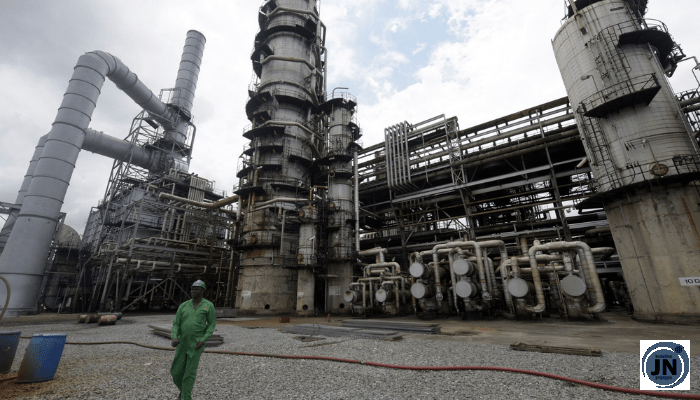The Federal Government has announced plans to potentially reduce the crude oil supply allocated to Dangote Petroleum Refinery as part of its evolving strategy to ensure equitable crude distribution among all local refineries. Currently, Dangote Refinery receives an allocation of 300,000 barrels per day, but this figure may be revised unless Nigeria’s crude oil production experiences a significant increase. This update was reported on Wednesday by The PUNCH.
The adjustment is tied to the government’s naira-for-crude initiative, introduced to stabilize fuel prices and mitigate foreign exchange volatility. This program has also gained importance following the recent commencement of operations at the Warri and Port Harcourt refineries, which have a combined processing capacity of 135,000 barrels per day. These refineries are operated by the Nigerian National Petroleum Company Limited (NNPCL), marking a significant shift after years of neglect that left the country heavily reliant on fuel imports.

The move to potentially cut Dangote Refinery’s allocation is seen as a measure to foster competition in the downstream oil sector, ensuring that all operational refineries share the available crude resources. According to a source close to the development, with additional facilities such as the Kaduna Refinery and the BUA Refinery expected to begin operations soon, the allocation system must be adjusted to meet the rising demand. “The current 300,000 barrels allocated to Dangote Refinery will have to be shared among all refineries, given the increasing demand,” the source explained.
Introduced last year, the naira-for-crude initiative allocated a total of 450,000 barrels daily to domestic refineries, with Dangote Refinery receiving the lion’s share as part of a six-month pilot program. This initiative has been credited with reducing fuel costs, with further price reductions anticipated as Nigeria's refining capacity expands.
Despite the program's benefits, challenges remain. The NNPCL has stopped selling crude oil on credit, requiring local refiners to make upfront payments. This policy shift aims to boost government revenues but has drawn criticism from some refiners, who argue it could strain their operations. For Dangote Refinery, which has an optimal capacity of 650,000 barrels per day, reduced local supply might necessitate importing crude oil at international market prices.
The Nigerian Upstream Petroleum Regulatory Commission (NUPRC) has projected that local refineries, including Dangote, Warri, and Port Harcourt, will require over 123 million barrels of crude oil between January and June 2025. To meet this demand, the government is intensifying efforts to increase daily crude production to over 2 million barrels through initiatives such as Project 1 Million Barrels.
These developments are part of Nigeria’s broader goal to reduce reliance on imported petroleum products and achieve self-sufficiency in fuel production. The operational ramp-up of local refineries marks a significant step toward this goal, with the first half of 2025 expected to witness increased collaboration between upstream producers and domestic refining facilities. This collaboration is crucial to fostering a sustainable and competitive petroleum industry in Nigeria.

